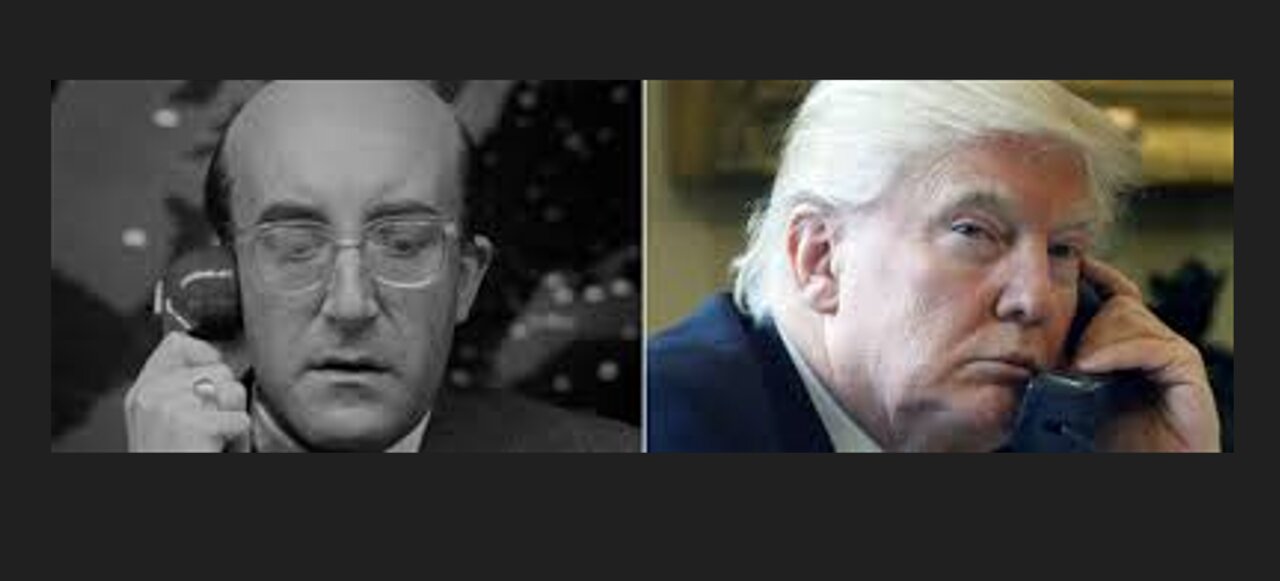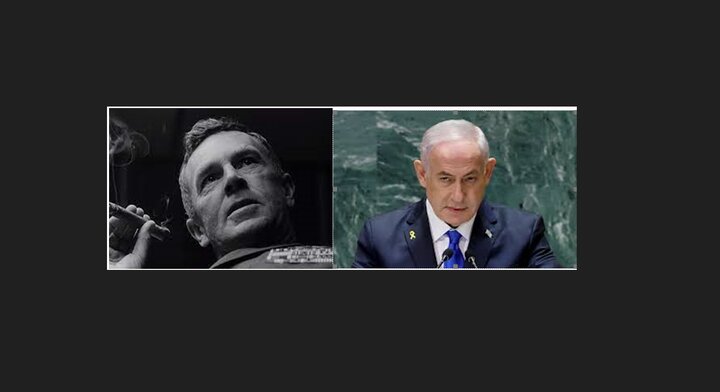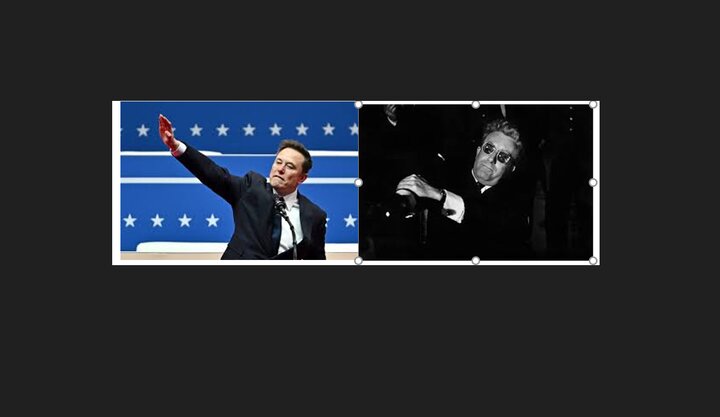How the Trumps learned to stop worrying and love the bomb

Six decades after Stanley Kubrick’s Dr. Strangelove satirized Cold War paranoia, its chilling themes resonate anew. Today’s global stage features leaders echoing the film’s unhinged characters—Netanyahu as a reckless strategist, Musk as a techno-utopian whisperer, and Trump as a hapless figurehead. The bomb is no longer feared but coveted, a symbol of ego-driven dominance. As humanity teeters on the edge, this article explores how moral voids and unchecked ambition fuel a modern-day Strangelove story.
Part I: The Question, or The Problem
Reality mirrors fiction with uncanny cruelty. Revisit Stanley Kubrick’s Dr. Strangelove or: How I Learned to Stop Worrying and Love the Bomb—a film born from the 1960s Cold War panic—and you might mistake it for a Nostradamian prophecy of U.S. President Donald Trump’s psyche.
This parable, adapted from Peter George’s Red Alert, follows General Jack D. Ripper, a deranged U.S. officer who unilaterally orders a nuclear strike to preempt an imagined Communist victory.
President Merkin Muffley, recoiling at the madness, is seduced by Dr. Strangelove, an ex-Nazi scientist (a caricature of Wernher von Braun, architect of Hitler’s V-2 rockets and later NASA’s Apollo dreams).
With a mechanical arm twitching in Sieg Heil salutes, Strangelove reframes apocalypse as opportunity: millions may perish, but the enemy will burn first.
Six decades later, Kubrick’s satire feels documentary.
Benjamin Netanyahu now plays Ripper, the unhinged strategist dragging the world toward ruin.

Elon Musk—with his awkward Nazi-esque gestures—mirrors Strangelove’s perverse logic, whispering techno-utopian delusions to powerbrokers.
Trump, the hapless Muffley, mumbles platitudes about peace while war-hungry advisors pull the strings.
The bomb is no longer a threat to fear but a toy to covet—a golden idol in the temple of ego.
The script writes itself: a cabal of self-serving actors, drunk on power, rehearsing humanity’s funeral.
Part II: The Answer, or The Solution
Why do figures like Trump succumb to the siren song of Strangeloves and Rippers?
The answer lies in a void of moral education—a worldview forged in greed’s crucible.
To them, the world is a stockpile to plunder, a zero-sum game where dominance justifies desolation.
Their fatal error is a failure to grasp that nations like Iran, Yemen, and Palestine fight not to gain but to preserve.
Trump’s philosophy distorts the wisdom of Omar Khayyam—a renowned Iranian poet and scholar likely unknown to Trump—turning the timeless advice to “seize the moment” into a thief’s creed: “steal before someone else does.”
He lacks “death-awareness”—the humility born of confronting mortality’s shadow.
Would he flinch if dragged centuries beyond his grave to witness the aftermath of his choices? To see children buried under rubble, cities razed by preemptive strikes, lies outliving their architects?
He knows his sycophants—Mike Pompeos, Jared Kushners, Bibi Netanyahus—are mercenaries of flattery, arsonists feeding his vanity.
His trajectory mirrors Saddam Hussein’s: a tyrant who loved no one, trusted no one, and died a cautionary tale.
Watch Volodymyr Zelensky's humiliation fiasco at the White House: the fawning laughter, transactional glee, and JD Vance's repugnant slavishness.
They ensure he never asks: What legacy awaits when the applause fades?
Epilogue: A requiem for the living
Trump, Musk, and Netanyahu: whether you believe in hellfire or oblivion, your deeds will outlive you.

The radiation of your choices—scorched earth, orphaned generations, ecosystems gutted for profit—will linger long after your gold-plated caskets seal.
Stripped of sycophants and spin, what remains of a life hoarding power? Only ash and history’s silent judgment.
Perhaps it is time to relearn what the West has forgotten: true power lies not in dominion but stewardship.
To think beyond rockets and markets, to confront the void we recklessly ignore. To leave a world where “loving the bomb” is not a punchline but an epitaph.
The alternative is a strangelove story with no end—a farce without laughter, a requiem without redemption.
Leave a Comment